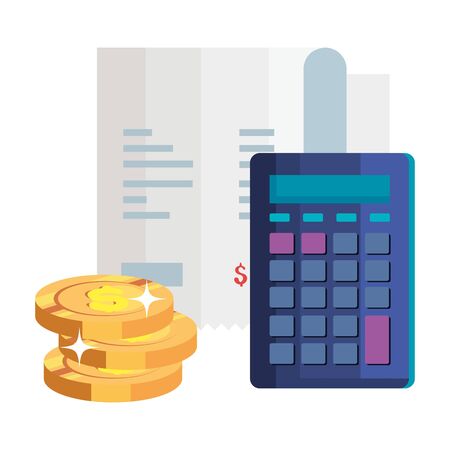1. Understanding Your Post-Retirement Expenses
Planning for early retirement means understanding how your expenses will change once you no longer have a traditional paycheck. To create a sustainable budget, you need to identify both essential and discretionary expenses. This ensures that your savings and investments can support your desired lifestyle.
Essential Expenses
These are the non-negotiable costs that you must cover to maintain a basic standard of living in retirement.
(1) Housing Costs
Your housing expenses may remain one of your largest financial obligations in retirement. Consider whether you plan to own or rent, downsize, or even relocate to a more affordable area.
| Housing Expense | Considerations |
|---|---|
| Mortgage/Rent | Will you have a mortgage in retirement, or should you pay it off before retiring? |
| Property Taxes | If you own a home, factor in potential property tax increases. |
| Maintenance & Repairs | Avoid unexpected costs by budgeting for home maintenance. |
| Utilities | Electricity, water, internet, and other services will still be necessary. |
(2) Healthcare Costs
Healthcare is often one of the most significant expenses for retirees, especially if youre retiring before Medicare eligibility at age 65.
- Private health insurance premiums
- Out-of-pocket medical expenses (prescriptions, doctor visits)
- Long-term care planning (assisted living, home care)
- Dental and vision care
(3) Daily Living Expenses
The cost of groceries, transportation, and other daily necessities must be accounted for in your retirement budget.
Discretionary Expenses
The following costs are not essential but contribute to your quality of life. You may adjust these based on available funds.
(1) Travel and Leisure
If traveling is part of your retirement dream, set aside funds for trips while considering budget-friendly options like off-season travel or extended stays.
(2) Hobbies and Entertainment
You’ll likely have more free time in retirement, so budgeting for hobbies like golf, photography, or attending events is important.
(3) Dining and Social Activities
Eating out and socializing with friends can add up quickly. Consider setting limits or exploring cost-effective alternatives like potlucks or home-cooked meals with loved ones.
2. Building a Sustainable Budget Without a Paycheck
Planning for early retirement requires a well-structured budget that ensures financial stability without relying on a traditional paycheck. By strategically organizing your income sources and prioritizing expenses, you can create a sustainable financial plan tailored to your retirement goals.
Understanding Your Income Sources
Without a paycheck, your income will come from various sources. Its important to identify these sources and estimate how much you can safely withdraw each year.
(1) Investment Withdrawals
Plan withdrawals from stocks, bonds, or mutual funds based on safe withdrawal rates, such as the 4% rule.
(2) Rental Income
If you own rental properties, factor in monthly rental payments while accounting for maintenance costs and vacancies.
(3) Passive Income Streams
Consider dividends, royalties, or business earnings that generate consistent cash flow with minimal effort.
(4) Social Security and Pensions
Depending on your age and work history, you may receive Social Security benefits or pension payments.
Prioritizing Your Expenses
To make your budget sustainable, categorize and prioritize expenses based on necessity and lifestyle preferences.
| Expense Category | Description | Estimated Monthly Cost |
|---|---|---|
| Housing | Mortgage, rent, property taxes, utilities | $X,XXX |
| Healthcare | Insurance premiums, medical bills, prescriptions | $X,XXX |
| Daily Living Costs | Food, transportation, clothing, personal care | $X,XXX |
| Entertainment & Travel | Hobbies, vacations, dining out | $X,XXX |
| Savings & Investments | Emergency fund contributions, reinvestments | $X,XXX |
Adjusting for Market Fluctuations
Your financial situation may change over time due to market conditions or unexpected expenses. To maintain stability:
(1) Maintain a Cash Reserve
Keep 1-2 years worth of living expenses in cash or liquid assets to cover downturns in the market.
(2) Reevaluate Your Budget Annually
Review spending habits and adjust withdrawal rates based on portfolio performance.
(3) Reduce Discretionary Spending If Needed
If markets decline or unexpected costs arise, cut back on non-essential expenses like travel or entertainment.
A well-planned budget allows you to manage expenses efficiently while enjoying early retirement. By structuring income sources wisely and prioritizing financial needs, you can sustain your desired lifestyle without the security of a traditional paycheck.

3. Generating Income Streams Beyond Traditional Employment
Achieving early retirement requires finding ways to cover your living expenses without relying on a traditional paycheck. Diversifying your income sources can provide financial stability and help you maintain your desired lifestyle. Here are some alternative income streams to consider.
Investment Income
Investing wisely can create a steady income stream that supports your early retirement. Common investment options include:
- Dividend Stocks: Companies that pay dividends distribute a portion of their profits to shareholders, providing regular income.
- Bonds: Fixed-income securities offer interest payments at regular intervals.
- Index Funds and ETFs: These investment vehicles provide diversified exposure to the stock market with potential long-term growth.
Rental Properties
Real estate can generate passive income through rental payments. Whether you own residential or commercial properties, rental income can be a reliable source of cash flow. Consider these factors when investing in real estate:
| Factor | Description |
|---|---|
| Location | A desirable location increases property value and demand for rentals. |
| Property Type | Single-family homes, apartments, and vacation rentals have different risks and returns. |
| Management | You can manage properties yourself or hire a property management company. |
Side Gigs and Freelancing
If you enjoy working on projects, side gigs and freelancing can supplement your income while keeping you engaged. Consider options like:
- Consulting: Use your expertise to advise businesses or individuals.
- Freelance Writing or Design: Offer creative services on platforms like Upwork or Fiverr.
- E-commerce: Sell handmade crafts, digital products, or dropshipping items online.
Passive Income Strategies
Generating passive income allows you to earn money with minimal ongoing effort. Some popular strategies include:
- Affiliate Marketing: Promote products and earn commissions on sales.
- Create Online Courses: Share your knowledge by selling courses on platforms like Udemy or Teachable.
- Write a Book: Self-publish ebooks or audiobooks for continuous royalties.
Diversifying your income streams ensures financial security throughout early retirement. By combining investments, rental properties, side gigs, and passive income strategies, you can maintain financial independence without relying on a traditional paycheck.
4. Managing Healthcare and Unexpected Costs
One of the biggest challenges in early retirement is handling healthcare expenses and unexpected costs without employer-sponsored benefits. Planning ahead can help you maintain financial stability and avoid major financial setbacks.
Health Insurance Options
Without an employer-provided health plan, youll need to find alternative coverage. Here are some common options:
- Marketplace Plans: The Affordable Care Act (ACA) marketplace offers various plans based on income levels.
- COBRA Coverage: If you recently left a job, you may qualify for COBRA to extend your previous employer’s insurance temporarily.
- Health Sharing Programs: Some non-traditional healthcare sharing programs can be more affordable alternatives.
- Spouse’s Employer Plan: If your spouse is still working, you may be able to join their health insurance plan.
- Private Insurance: You can explore private insurance policies, but they may be costly depending on your age and health condition.
Planning for Medical Expenses
Medical costs can be unpredictable, so its essential to budget appropriately. Consider these strategies:
- Health Savings Account (HSA): If you have an HSA-eligible high-deductible health plan, contributing to an HSA allows tax-free savings for medical expenses.
- Annual Budgeting: Estimate yearly medical costs, including premiums, co-pays, prescriptions, and dental or vision care.
- Preventive Care: Staying healthy through regular check-ups and a good lifestyle can help minimize long-term medical costs.
Building an Emergency Fund
An emergency fund ensures youre prepared for unexpected expenses like home repairs, car breakdowns, or sudden medical bills. Here’s how much you should aim to save:
| Expense Type | Recommended Savings |
|---|---|
| Medical Emergencies | $5,000 – $10,000 |
| Home Repairs | $3,000 – $8,000 |
| Auto Repairs | $1,500 – $5,000 |
| Other Unexpected Costs | $2,000 – $5,000 |
Managing Long-Term Care Risks
If you retire early, long-term care planning is crucial. Consider these options:
- Long-Term Care Insurance: Purchasing a policy early can lock in lower rates before premiums become too expensive.
- Savings Allocation: Set aside funds specifically for potential long-term care needs in later years.
- Medicaid Planning: Understand Medicaid eligibility requirements if you anticipate needing government assistance in the future.
A solid plan for healthcare and unexpected costs will help ensure your financial security throughout early retirement.
5. Adjusting and Optimizing Your Budget Over Time
Achieving early retirement requires ongoing adjustments to your budget to ensure long-term financial stability. Your financial needs, market conditions, and personal lifestyle may change over time, so it’s essential to regularly review and optimize your budget.
Why Regular Budget Adjustments Matter
Without a traditional paycheck, your financial situation depends on investments, savings, and passive income. Keeping a close eye on your expenses helps prevent overspending and ensures your money lasts throughout retirement.
(1) Monitor Your Spending Habits
Track your expenses monthly or quarterly to identify areas where you might be overspending. Use budgeting apps or spreadsheets to compare actual spending with planned budgets.
(2) Optimize Investment Withdrawals
Reassess your withdrawal strategy based on market performance and personal needs. Consider using the 4% rule as a guideline but adjust according to inflation, investment returns, and unexpected costs.
(3) Adapt to Changing Expenses
Your cost of living may fluctuate due to healthcare needs, travel plans, or inflation. Adjust discretionary spending accordingly while ensuring essentials remain covered.
(4) Rebalance Your Portfolio
Market conditions change over time, affecting the performance of your investments. Periodically rebalance your portfolio to maintain an optimal mix of stocks, bonds, and other assets that align with your risk tolerance.
Sample Budget Review Table
| Category | Planned Budget | Actual Spending | Adjustment Needed? |
|---|---|---|---|
| Housing | $2,000 | $1,900 | No |
| Healthcare | $500 | $600 | Yes – Increase Allocation |
| Entertainment/Travel | $800 | $1,000 | Yes – Reduce Spending |
| Groceries & Dining Out | $700 | $750 | Minimal Adjustment Needed |
| Total Monthly Expenses | $4,000 | $4,250 | Review Spending Plan |
Key Takeaways for Long-Term Success
(1) Set Regular Check-Ins for Your Budget
Schedule reviews every three to six months to make necessary adjustments.
(2) Stay Flexible with Lifestyle Choices
If expenses increase unexpectedly, consider modifying discretionary spending to maintain financial stability.
(3) Keep an Emergency Fund Ready
An easily accessible emergency fund can help cover sudden expenses without disrupting long-term investments.
(1) Action Step: Track Expenses Consistently
Use financial tracking tools like Mint or Personal Capital to monitor spending patterns.
(2) Action Step: Adjust Withdrawal Rates as Needed
If market conditions decline, consider reducing withdrawals temporarily to preserve principal balances.
(3) Action Step: Seek Professional Advice When Necessary
A financial planner can provide guidance when making significant budget changes or investment decisions.
By continuously monitoring and optimizing your budget, you can maintain financial security throughout early retirement and adapt to any unexpected changes along the way.


